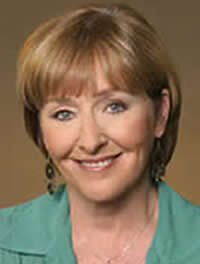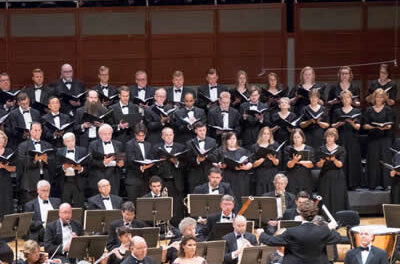Beasley-Curtis Auditorium, in Memorial Hall, on the campus of the University of North Carolina was only about half filled for another knock-out concert by the UNC Symphony Orchestra under the direction of Tonu Kalam Tuesday night. Two rarely-heard works by well-known composers were performed with panache, skill and impressive polish. Richard Luby was the featured soloist in Igor Stravinsky’s Violin Concerto in D, and Pyotr Ilyich Tchaikovsky’s Symphony No. 3 in D, Op. 29, the “Polish,” provided the post-intermission drama.
The widely heard and respected Luby took obvious pleasure in dancing his way through Stravinsky’s imaginative and creative work. It is a product of his neo-classical period and was composed in the summer of 1931 in France, where the influence of jazz was all the rage. Other influences came from violinist Samuel Dushkin, who premiered the work in Berlin in October of 1931, and violinist and composer Paul Hindemith, whose advice Stravinsky sought.
The Concerto is cast in four sections: Toccata, Aria I, Aria II and Capriccio. It is intended as “pure music” without programmatic or emotional intention. Nevertheless, for this listener, there were moments that touched emotions in a special way. The Aria II section approached pathos, especially with the tragic news from Blacksburg, Virginia, so fresh in my uncomprehending mind. The Capriccio captured the meaning of the word from many different angles as it bounced and skipped playfully, sometimes ebullient, sometimes evasive, and sometimes almost sinister. The orchestra was fantastic in its execution of the subtle rhythms and tricky tempo and dynamic changes. Luby’s performance was stellar, demonstrating his mastery and artistry with exhilarating delight in the music. At times the violin was nearly lost in the boisterous and playful orchestration, perhaps at the intention of the composer to meld the soloist into the music as a whole.
Tchaikovsky’s Third Symphony is not as popular as the others are. It does not have the memorable tunes of the last three or even the Second. It struggled for recognition from the very beginning. The Vienna Philharmonic rejected it because it was “too Russian.” Russians rejected it because it was too “absolute,” in other words, too German. Though it bears the nickname “Polish,” there is no indication that Tchaikovsky had any Polish program or reference in mind, save that the last movement is subtitled Allegro con fuoco (tempo di polacca).
The Symphony is cast in five movements, the first and last fully symphonic, with sweeping luxurious sound. The middle three movements are lighter, more like a suite or serenade. There is much intricate solo work for the woodwind and brass principals, melodies passed back and forth, and varying colors on a more intimate canvas in these middle movements. The closing movement in contrast employs the full force of the orchestra nearly throughout, ending with a triumphant hymn-like passage that almost lifts you out of your seat.
Kalam, born of Estonian parents, educated at Harvard, UC-Berkeley and the Curtis Institute of Music, is also Music Director and Conductor of the Longview Symphony Orchestra in Texas along with other musical activities and endeavors. He is a treasure to have in the music department at UNC-CH. He prepares his student musicians to a remarkably honed degree. What an experience it must have been for them to have learned these two widely diverse, unique and challenging pieces under his obviously knowledgeable and masterful guidance.
The UNC Symphony is made up students and a handful of alumni and townspeople. Few of them are music majors, but they play mainly for the love of it. It is one of the few orchestras in this part of the country that performs with such a full complement of strings: 17 each of first and second violins, 12 violas, 11 cellos and 10 basses. At times they produce a sound so silky smooth and rich I am reminded of the Philadelphia Orchestra under Ormandy. Just to see that many violins, bowing in perfect unison, is a marvelous treat, beautiful to behold from the balcony. Tonight special praise is also in order for the woodwinds and brass, especially the soloists. They all did an impeccable job with both the Stravinsky and the Tchaikovsky. There was not a miscue or a flaw worth mentioning. However, please keep this a secret. If the word gets out I fear someone will entice Kalam away from us, and the UNC Symphony members may all transfer to music conservatories.












